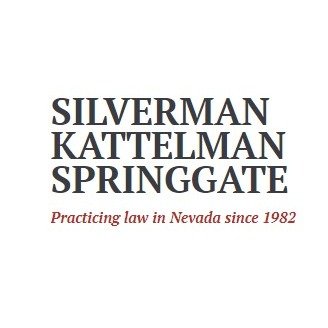Best Collaborative Law Lawyers in Reno
Share your needs with us, get contacted by law firms.
Free. Takes 2 min.
Free Guide to Hiring a Family Lawyer
List of the best lawyers in Reno, United States
About Collaborative Law in Reno, United States:
Collaborative Law is a legal approach that allows parties to resolve their disputes outside of court, emphasizing open communication, negotiation, and problem-solving. In Reno, United States, collaborative law is recognized as an effective alternative dispute resolution method for various legal matters, including family law, divorce, child custody, and property division.
Why You May Need a Lawyer:
While collaborative law encourages cooperation and aims to avoid litigation, seeking legal representation is essential to protect your rights and ensure a fair outcome. A lawyer experienced in collaborative law can guide you through the process, help you understand your rights and obligations, draft necessary legal documents, and negotiate effectively on your behalf.
Local Laws Overview:
In Reno, United States, certain local laws are specifically relevant to collaborative law:
- Family Law Regulations: Collaborative law is commonly used for family law matters in Reno, such as divorce, child custody, and visitation rights.
- Property Division Guidelines: The local laws determine how marital property should be divided equitably between spouses in a collaborative divorce.
- Child Custody Laws: Reno follows specific guidelines to determine child custody arrangements, which can be addressed through collaborative law.
Frequently Asked Questions:
1. Can I use collaborative law even if I'm already involved in a court case?
Yes, collaborative law can be pursued even if you are currently involved in a court case. Parties can mutually agree to transition to collaborative law to resolve their disputes outside of court.
2. What happens if we cannot reach an agreement through collaborative law?
If an agreement cannot be reached through collaborative law, both parties will need to pursue other legal options, which may include traditional litigation in court.
3. How long does collaborative law usually take to resolve a case?
The duration of collaborative law cases varies depending on the complexity of the issues involved and the willingness of the parties to reach an agreement. On average, collaborative cases tend to resolve more quickly than litigation cases.
4. Can I share the same lawyer with my ex-spouse in collaborative law?
No, each party in a collaborative law case must have their own independent lawyer to ensure their individual interests are protected throughout the process.
5. Is collaborative law confidential?
Yes, collaborative law is governed by strict confidentiality rules. This promotes an open and safe environment for parties to freely communicate and explore potential solutions without fear of their statements being used against them in court.
Additional Resources:
If you need legal advice or further information about collaborative law in Reno, United States, consider reaching out to the following resources:
- Reno Collaborative Law Association
- Local Family Law Court
- Nevada State Bar Association
Next Steps:
If you require legal assistance in collaborative law, the following steps are recommended:
- Evaluate your legal situation and determine if collaborative law is the right approach for you.
- Research and choose a qualified collaborative law attorney in Reno who can represent your interests.
- Contact the attorney to schedule an initial consultation to discuss your case and explore your options.
- If mutually agreed upon, begin the collaborative law process, ensuring open communication and active participation throughout.
- Work towards a fair and mutually beneficial resolution of your legal matter.
Lawzana helps you find the best lawyers and law firms in Reno through a curated and pre-screened list of qualified legal professionals. Our platform offers rankings and detailed profiles of attorneys and law firms, allowing you to compare based on practice areas, including Collaborative Law, experience, and client feedback.
Each profile includes a description of the firm's areas of practice, client reviews, team members and partners, year of establishment, spoken languages, office locations, contact information, social media presence, and any published articles or resources. Most firms on our platform speak English and are experienced in both local and international legal matters.
Get a quote from top-rated law firms in Reno, United States — quickly, securely, and without unnecessary hassle.
Disclaimer:
The information provided on this page is for general informational purposes only and does not constitute legal advice. While we strive to ensure the accuracy and relevance of the content, legal information may change over time, and interpretations of the law can vary. You should always consult with a qualified legal professional for advice specific to your situation.
We disclaim all liability for actions taken or not taken based on the content of this page. If you believe any information is incorrect or outdated, please contact us, and we will review and update it where appropriate.










